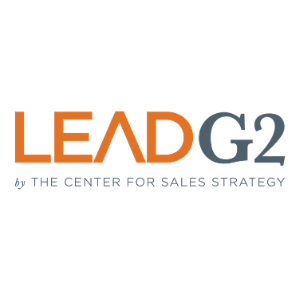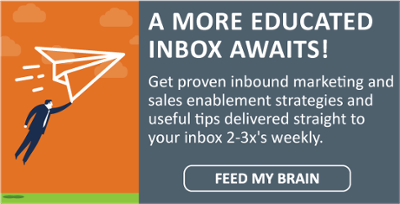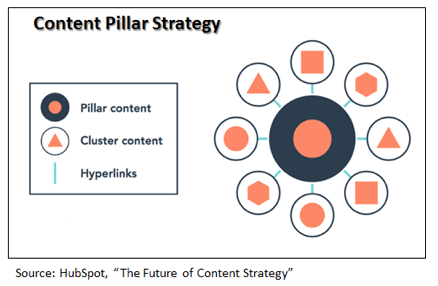It Takes Commitment and a Recipe for CPA and Consulting Firm Niche Practices to Do Inbound Marketing
 I surprised my wife the other day by researching, finding a recipe, shopping and then preparing chicken marsala. I surprised myself when after all was said and done, it tasted pretty darn good!
I surprised my wife the other day by researching, finding a recipe, shopping and then preparing chicken marsala. I surprised myself when after all was said and done, it tasted pretty darn good!
(We can talk about the mess I made, how I managed to use 90% of all of our pots and pans, and how flour ended up on our ceiling at a later time).
Truth be told, it wasn’t all that hard because I was committed to surprising Janice and I found a recipe that worked within my culinary skill set. Hmmmm... commitment and a recipe, eh??
It turns out that I also found something to write about for this week’s blog post!
A Recipe for a World Class Inbound Marketing Program
Here’s a list of six ingredients that niche practice leaders should have in their inbound marketing recipe:
(1) Niche growth plan built on SMART Marketing Objectives
Each niche practice in your firm should develop an annual marketing plan that goes far beyond zero based budgeting. One approach to consider is SMART marketing, which calls for you to start your plan by developing SMART objectives: specific, measurable, achievable, realistic and timely. Once a SMART objective (or objectives) have been defined, you can turn to planning the strategies and tactics you’ll employ for realizing those objectives.
Get a template from HubSpot for developing a SMART plan here.
(2) Adequate Funding for Marketers for Reaching Your Reaching SMART Objectives
Accounting firm marketing – as well as marketing programs of other professional service firms – requires adequate funding. Today’s niche marketing budget requires funding for both branding and lead generation purposes, as well as for marketing technology/infrastructure. If you want to be competitive, you need to be prepared to invest – not “spend” – in order to reach your objectives. Partners are notoriously cheap when it comes to investing in marketing, but study after study shows that high performing firms spend 3 to 5% of the top line on marketing.
(3) Educate Yourself: Learn More About Inbound Marketing
Before you can plan strategies and tactics for achieving SMART Marketing Objectives, take some time and catch up with latest developments in professional services marketing. You’ll want to learn about inbound marketing, content development, lead generation, the death of technical SEO, best website practices, responsive websites, and a lot more.
How can you possibly make a wise investment if you don’t know the playing field and rules of the game? There are a number of places where you can get information developed specifically for partners, including materials you can download for free, here.
(4) Educate Others: Put Marketer’s Into Your Prospect’s Shoes
One of the complaints that I hear from professional service firm marketers is that their partners just don’t spend enough time teaching them about the key issues, challenges and pain points of the niche’s target market clients and prospects. Marketers can’t create great content for your website, develop and manage a lead generation campaign, or even help build your personal brand if they are operating in the dark.
The solution: take an hour once per month to give your marketing team an update on what’s going on in the niche. You just might find that great marketing ideas will come from that simple effort.
(5) Review Marketing Metrics and Always be Making Changes
One of the benefits of Inbound marketing is the ability to always be measuring results of marketing activities. This is particularly important when doing SMART marketing, as “measurability” is a critical component of this approach. There’s an abundance of key performance indicators related to marketing that every niche practice leader needs to see on a regular basis, from web visitors to conversion rates on lead generation programs and more.
Think about this: if you can’t see and measure results, how can you know your ROI from your marketing investment?
(6) Follow up on Leads
You simply cannot have a world class inbound marketing program if you don’t have a way to follow up and close the leads developed by the program. Every lead generation campaign executed in the niche needs to have a corollary sales plan identifying who is going to be responsible for following up on a lead and the timing of that follow up.
There’s nothing sadder or more frustrating to a marketer than to see leads with expired shelf lives because of a partner’s failure to follow up on a lead on a timely basis.
Cooking Up More Visibility, More Leads and a Bigger ROI for Your Niche Practice’s Marketing Investment
Over the next several years, I see niche practice leaders incorporating Inbound marketing into their growth activities in bigger and stronger ways than ever before. That doesn’t mean an abandonment of traditional marketing activities that work, rather, it means replacing those that have lost their effectiveness. Part of this shift will be due to younger partners who are more literate and comfortable with Inbound marketing making their mark upon the practice by bringing their perspectives on the value of Inbound marketing to the table.
Building a world class Inbound marketing program isn’t just a matter of budget; it’s a matter of commitment. So in 2017, make a commitment to using the 6 ingredients I’ve discussed in the post and you’ll create a stock that will be the basis for every niche marketing recipe you’ll make in the future.
.png)








Leave a Comment